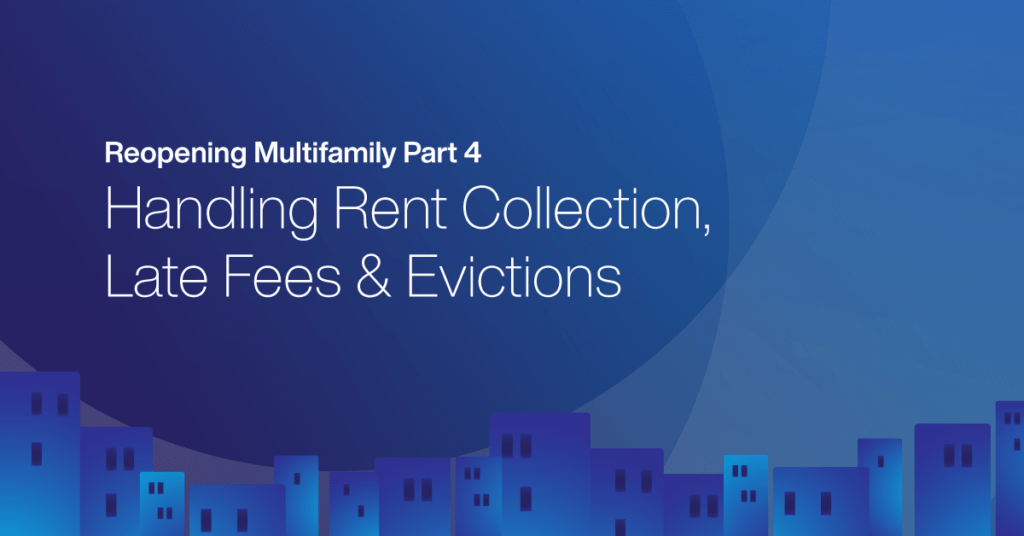To help multifamily companies balance safety, resident satisfaction, company viability, and legal compliance as they begin to reopen communities, Grace Hill has launched a series of articles and tools that support the reopening response. Part one of the series introduces strategies for reducing liability risk. Part two discusses establishing new leasing practices. Part three covers Resuming Amenity & Maintenance Services.
Part 4 – Handling Rent Collection, Late Fees & Evictions
It is still uncertain what resident ability to pay rent will look like moving through the summer; however, our latest Resident Sentiment Survey found that only 64% of residents anticipate being able to pay their June rent in full, compared to 84% in April and 78% in May. Companies will have to carefully consider what options they will provide, if any, to residents who are delinquent on their rent. First, though, it is critical to understand the various federal, state, and local regulations that apply to each community when setting policy for rental payments and evictions.
CARES Act
Determine whether the provisions in the Coronavirus Aid, Relief, and Economic Security (CARES) Act apply to any of your properties. (The CARES Act is an economic relief package passed by Congress on March 27, which includes specific limitations on evictions and late fees for covered companies. The CARES Act is set to expire 120 days from March 27; however, additional legislation may be passed before that time.)
Fair Housing
Remember that Fair Housing laws still apply to all properties. To prevent discrimination claims, you must apply all policies, including rent collection and eviction practices, consistently among all residents. If you decide to make exceptions to your policy in certain cases, you must make those exceptions for anyone in the same circumstances (rather than on an individual basis).
Local Regulations
Identify any state and local provisions regarding rental payments and evictions that apply to each community, and make sure your written policy reflects and complies with these. If you want to make rental payment and eviction policy as consistent across the company as possible, consider whether it is feasible and legally compliant to apply the most conservative policies (those that meet the most extensive resident protections) at all properties.
Download our Reopening Multifamily: Strategic Response Workbook to establish your strategy for handling rent collection, late fees, and evictions, and identify where new communication, technology, policies, and training are needed.
Communicate Policies
Be sure to communicate to all residents any payment options you offer, such as payment plans and incentives. Our May Resident Sentiment Survey found that 48% of residents say they are not aware of their community’s COVID-19 policies and procedures, and 35% report that their community management team has been “not at all flexible” with alternative payment methods and solutions. Both of these statistics impact resident satisfaction and could be remedied by better communication. Consider running resident surveys to assess how well you’re communicating your policies to residents at the community level.




